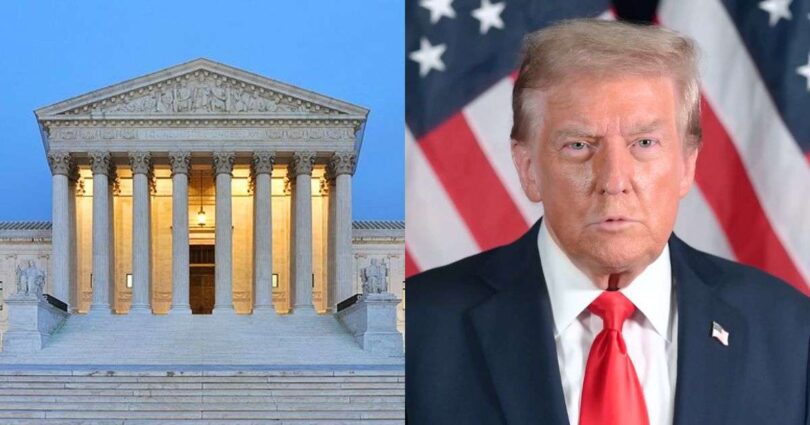In a key decision, the U.S. Supreme Court has allowed the Trump administration’s ban on “trans” military members to proceed, lifting an injunction that had temporarily blocked the policy.
This ruling provides a near-term victory for President Trump, even as the legal challenges to his January executive order continue to unfold.
The Trump administration’s executive order on Jan. 27 directed the Pentagon to implement new policies regarding trans-identifying individuals in the military, which included rescinding existing guidance inconsistent with military readiness.
This move immediately sparked legal battles, as seven trans-identifying service members filed lawsuits challenging the policy in federal courts in Washington, D.C. and Seattle.
U.S. District Judge Benjamin Settle responded to the plaintiffs’ lawsuit by issuing a preliminary injunction in March, which blocked the administration’s ability to enforce the ban while the case progressed.
Settle argued that the plaintiffs were likely to succeed on their claims that the executive order violated equal protection rights, First Amendment rights and procedural due process, according to Fox News.
However, the Ninth Circuit Court of Appeals refused to block the injunction, prompting the administration to appeal to the Supreme Court.
On Tuesday, the Court ruled to lift the lower court’s order, allowing the “trans” military ban to take effect in the meantime.
This Supreme Court decision represents a temporary victory for the Trump administration, as the Court did not rule on the underlying constitutional questions raised by the case.
Instead, it focused on procedural issues, giving the White House a chance to enforce its controversial policy while the legal challenges continue.
Justices Sonia Sotomayor, Elena Kagan and Ketanji Brown Jackson dissented from the ruling, advocating for the injunction to remain in place.
They expressed concern about the potential harm the “trans” military ban could cause. Despite these dissenting opinions, the majority of the Court sided with the administration, allowing its policy to go forward for now.
The executive order, known as the “Prioritizing Military Excellence and Readiness Executive Order,” argues that the policy serves the government’s interests in military readiness, unit cohesion, and good order and discipline.
The administration has argued that it aims to strengthen the military by ensuring its members meet the highest standards of physical and mental fitness.
The case is part of a broader wave of legal challenges that have followed the president’s efforts to reverse policies from the Obama administration, particularly those related to diversity and inclusion.
While the “trans” military ban remains one of the most controversial issues of Trump’s presidency, the Court’s decision reinforces the president’s authority in implementing military policies without immediate interference from lower courts.
The ruling also highlights the broader ideological divide in the judicial system, with conservative judges upholding the policy and liberal judges opposing it.
This split suggests that further legal battles are likely to occur as the case works its way through the courts in the coming months.
In response to the Supreme Court ruling, a spokesperson for the Department of Justice reaffirmed the administration’s commitment to defending its policies.
“The Department of Justice has vigorously defended President Trump’s executive actions, including the Prioritizing Military Excellence and Readiness Executive Order, and will continue to do so,” the statement read, according to Fox News.
Although the legal fight is far from over, Tuesday’s decision signals a significant shift in favor of the Trump administration’s “trans” military ban.
For now, the policy will be implemented, with the final outcome dependent on the resolution of the legal challenges still ahead.
Scroll down to leave a comment and share your thoughts.


Leave a Comment